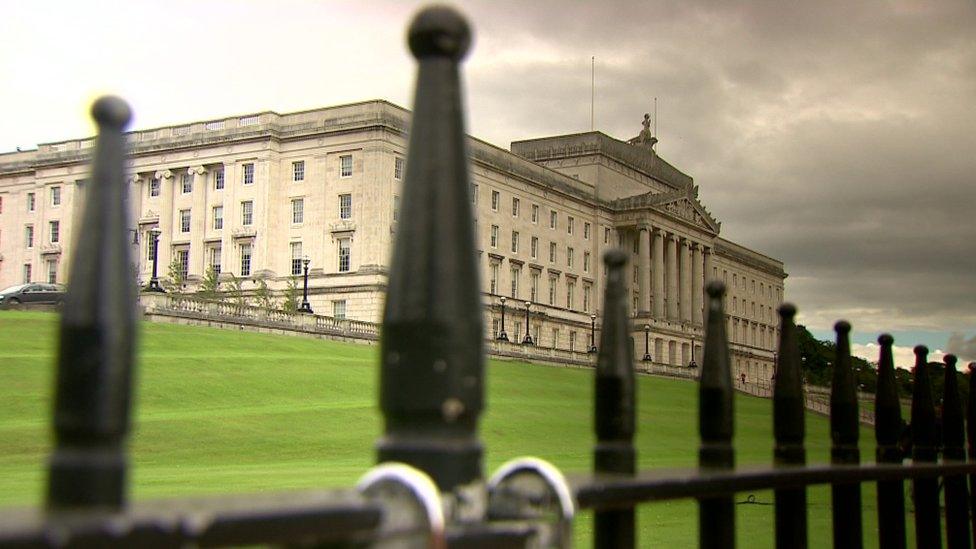Northern Ireland politics: Five things we learned this week
- Published
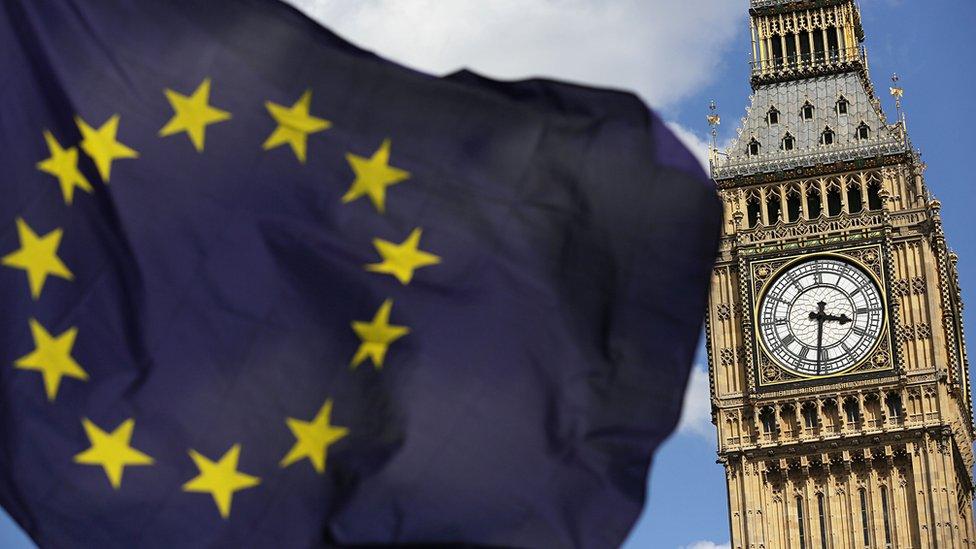
The UK's planned departure date from the European Union is coming swiftly down the tracks
The past week in politics has been confusing, fast-paced and at times, utterly surreal.
With so much going on, it's been hard to follow events that seem to be changing hour by hour.
Yet again, Northern Ireland is at the centre of the Brexit storm and there have been plenty of developments over the past week.
Here are five key things that happened - and what they might mean going forward.
Leo Varadkar says there may be some checks 'near the border' in a no-deal
Border talk gets explicit
Remarks by Taoiseach (Irish prime minister) Leo Varadkar about the possibility of checks "near" the Irish border in a no-deal Brexit, drew attention on Thursday.
With a no-deal Brexit on 31 October still on the table, concern has been growing for months about how the border between NI and the Republic of Ireland would be managed.
The backstop - the Irish government's preferred way of ensuring it remains frictionless - has been rejected by Boris Johnson and so far no alternative has been proposed to the EU.
In the event of no-deal, the Irish government has to uphold its obligations as a member of the EU's single market and ensure strict rules around food standards continue to be met.
Although the taoiseach had begun to concede checks would be required somewhere, in his speech he warned that some of them would likely need to take place "near the border".
It was the clearest admission yet of the unavoidable reality that keeping the Irish border practically invisible will be unlikely if a no-deal Brexit occurs.
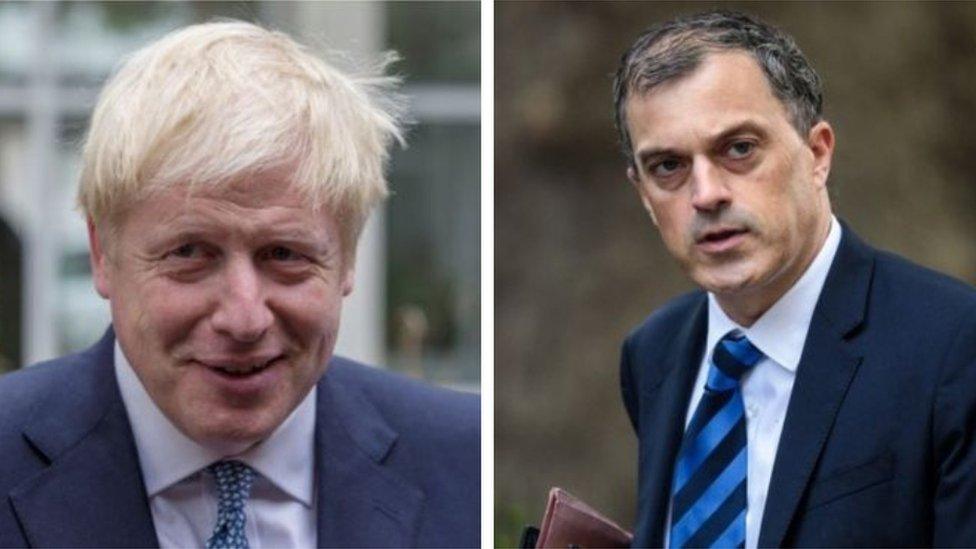
Boris Johnson and Julian Smith were at odds during a cabinet meeting about the impact suspending Parliament would have on Northern Ireland
The clash within Cabinet
There has been no shortage of fascinating political revelations this week - but one of the most fascinating came from documents published as part of a legal challenge against the government's decision to suspend Parliament.
It showed that the prime minister was at odds with Northern Ireland Secretary Julian Smith over the suspension.
Mr Smith warned the prime minister on 28 August that prorogation would impact on the time available for MPs to pass the Northern Ireland budget bill.
It could also potentially put at risk the ability to pass the necessary legislation relating to decision-making powers in a no-deal Brexit scenario.
Several warnings were issued by MPs last week that a no-deal Brexit would inevitably mean the return of direct rule in Northern Ireland.
But the document shows that Mr Johnson replied that the suspension should give "further impetus" to restore the Stormont executive and that he would make this point to Democratic Unionist Party (DUP) leader Arlene Foster.
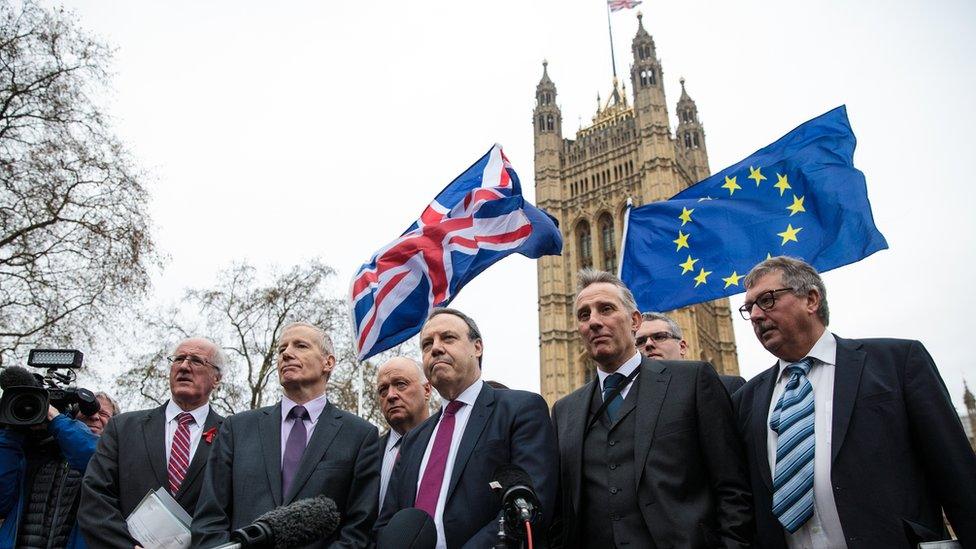
The DUP is sticking to its support for Boris Johnson, but the government has lost its working majority
DUP backs PM - but can't save him
The first day back in Parliament saw MPs inflict a big defeat against Boris Johnson, as they voted to bring legislation through Westminster designed to delay the UK's exit from the EU.
The DUP - which has propped up the Conservative Party since 2017 in a confidence-and-supply pact - remained loyal and voted with the government, opposing the move.
But its 10 votes weren't anywhere near enough to help the prime minister.
Hours earlier, the government's working majority of one ended when MP Philip Lee defected to the Liberal Democrats.
That shock, coupled with 21 Conservative rebels who then voted against the government (and lost the party whip because of it), meant the confidence-and-supply pact couldn't save Mr Johnson from defeat.
The DUP maintains it still has the ear of Number 10.
But given the government is 22 MPs short of a working majority, the party no longer has the ability to influence the outcome of crunch votes.
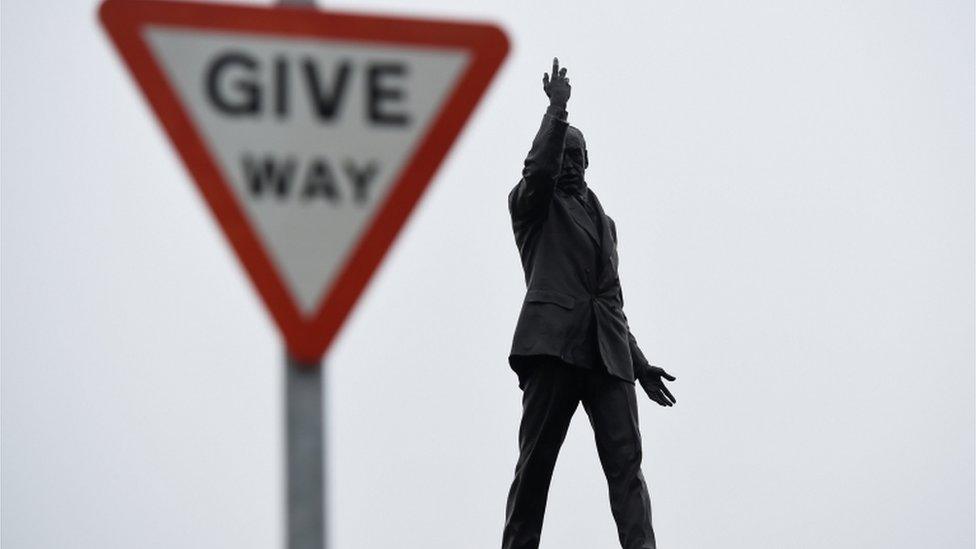
Northern Ireland has been without an executive since January 2017
Stormont talks to 'intensify'
At this point, it's pretty evident talks to kickstart power-sharing in Northern Ireland have stalled, mainly because of the ongoing focus around Brexit.
But on Wednesday, the government published progress reports about how efforts to restore Stormont are going.
The latest talks process began in May and the report said the government will now work to put forward "compromise solutions" to the Stormont parties.
Under the terms of legislation passed in July, time has to be set aside for MPs to debate these progress reports in the Commons.
The first debate is due to happen on Monday.
Allow X content?
This article contains content provided by X. We ask for your permission before anything is loaded, as they may be using cookies and other technologies. You may want to read X’s cookie policy, external and privacy policy, external before accepting. To view this content choose ‘accept and continue’.
But as for plans to intensify negotiations, Alliance's deputy leader Stephen Farry appeared to dismiss that, saying "the process has been treading water for the past few weeks at least".
Oh, and there's another potential issue that could hamper negotiations between the Stormont parties - an election.
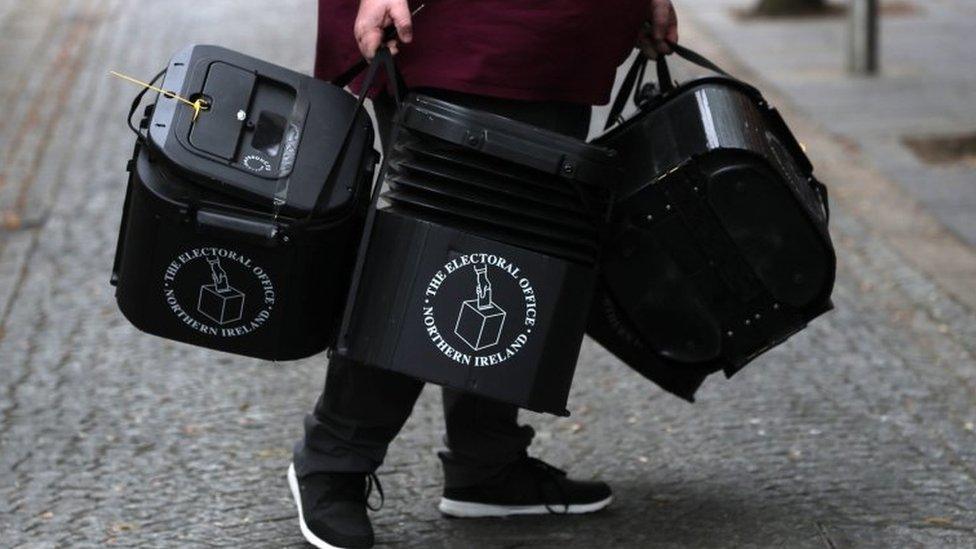
Could voters in Northern Ireland be asked to go to the polls for a third time this year?
A general election is inevitable
But it's a question of when.
The government wants an election in October, but it looks like opposition parties at Westminster will refuse to vote for it until they are satisfied that a no-deal Brexit on 31 October has been avoided.
Given Boris Johnson has no majority, an election will happen sooner than later, because the basic purpose of government is being able to get laws passed in Parliament.
All the Stormont parties are already on an election footing.
On Wednesday, SDLP leader Colum Eastwood said he'd meet Green leader Clare Bailey to discuss "agreed" pro-remain candidates, ahead of any snap poll.
If the last week in politics is anything to go by, the next one is set to bring just as much drama. Watch this space.
- Published4 September 2019
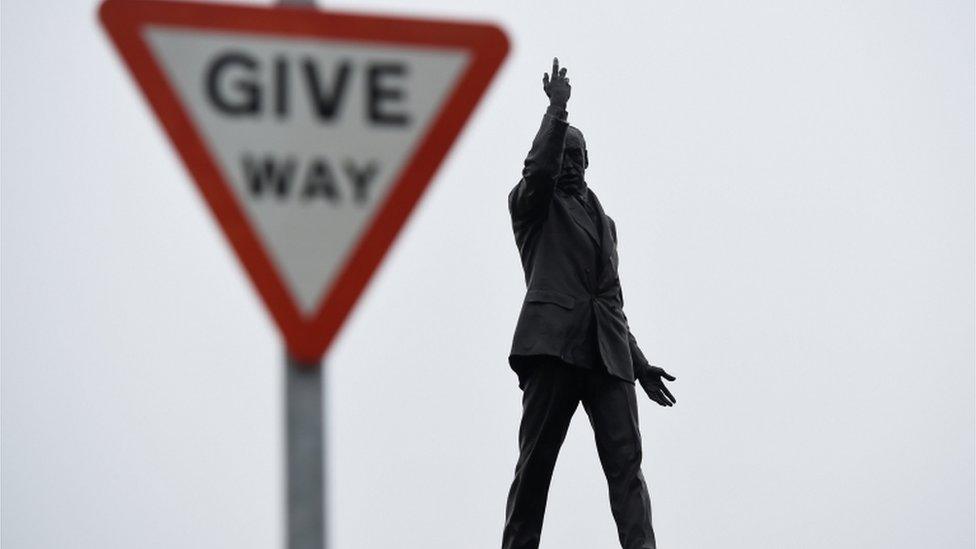
- Published3 September 2019

- Published31 March 2019
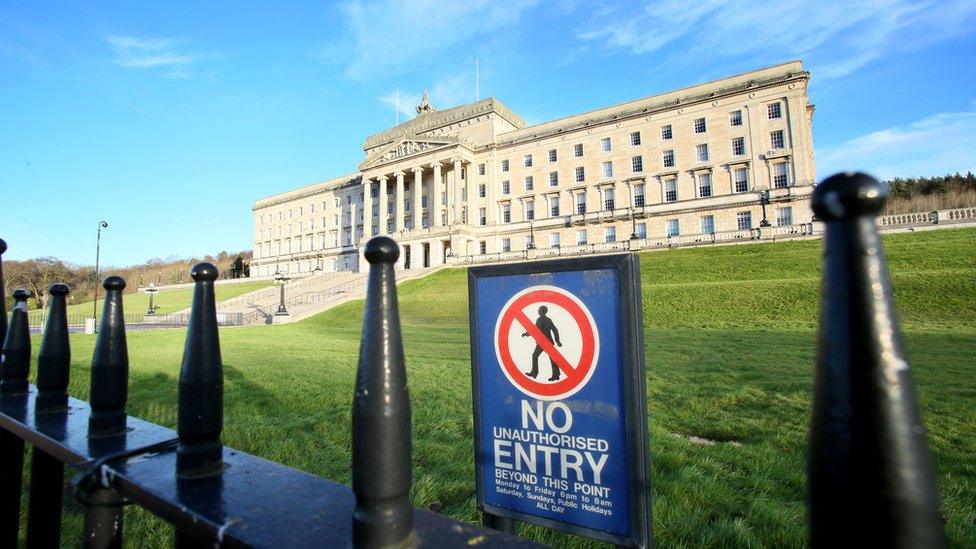
- Published5 February 2018
